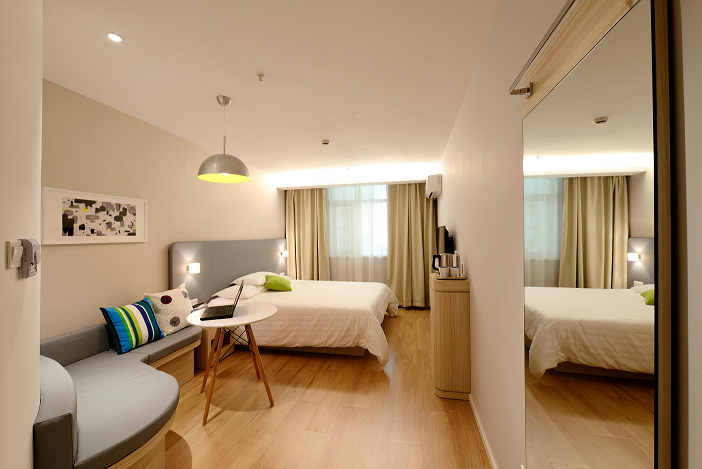What is the meaning of ‘Rooming in hotel’? Rooming refers to hotels assigning a room to your reservation, which is called ‘room blocking.’ When you make a booking, hotels sell you the room by its type, but the physical room is assigned later when your arrival nears or on the same day in the morning.
Not all rooms in a hotel are the same, even among the same room type. Deluxe rooms, for example, can have different views and be located on different wings and floors in the building. Some might have balconies, and others not, reside next to an elevator, near the nightclub, or have various other characteristics.
The Guest’s Experience
The factors mentioned above influence a crucial part of a guest’s experience with the hotel, either negatively or positively.
At the same time, rooming the right guest or the wrong guest can also impact a hotel’s revenue potential. Imagine the hotel blocking a Deluxe sea-view room for a two-day guest when the hotel has the potential to sell the room at a higher rate for a longer-stay guest whose tentative booking converts and wants the room from the next day.

The right room assignment is a win-win for both the guests and the hotel. There are lots of things going on behind this task, and we will dive into the details.
How Do Hotels Decide Which Room You Get?
When the hotel confirms your booking for a Deluxe room, one room is deducted from the inventory during your stay dates. However, the hotel doesn’t know if it’s going to be on a higher or lower floor since they don’t assign the room during the booking (unless you ask for it).
Hotels use different tactics to decide which rooms to offer their guests. To be more effective, they may manually assign rooms for certain guests, and they assign rooms with the help of a PMS (property management system) for the rest of the guests.
So it’s a mixed approach; we will see the details below.
Understanding Hotel Rooming Policies and Considerations
There are no standard or right-wrong ways of assigning rooms to guests, although some hotels or chains might have their own SOP (Standard Operating Procedures).
So, the hotels follow what is best for them.
Hotels may consider the steps below of the assignment; each step removes the better rooms for demanding, if not suitable, guests to shrink the pool and move on to the next, and so on.
- Accessible rooms: These rooms may also be assigned manually for guests with accessibility needs during the booking so they get removed from the inventory. When no such guests book, these rooms will be assigned the last when the hotel runs out of rooms. Hotels have very few such rooms, and it’s expected to assign them to those who don’t need them when the hotel is fully booked.
- VVIP guests: Quite often, hotels might have fewer rooms for these guests. Rooms are manually assigned much earlier, on the day or while they book. Once the room is assigned, the FO manager puts a note for others to know that it should not be unblocked. In some PMS systems like Opera, there is an option “DNM,” Do No Move tick to avoid other staff without proper permission unblocking it.
- Reservation details and guest preferences: Every hotel competes with others to meet guests’ expectations on undemanded, preferred room requests that the guests ask. So the hotels will try their best to accommodate these ‘special requests’ as requested in the booking such as a silent atmosphere, higher floor, lower floor, away from the lift, etc. Note: special requests are nearly demands made in the booking while guest preferences aren’t; such guests might have asked for a higher floor in the past, but not particularly in this booking.
Tips for Booking Rooming Arrangements
- Complementary upgrades: Hotels sometimes offer their customers better rooms. Most of the time, hotels do this to show their appreciation for guests’ loyalty when those better rooms are supposed to go unsed, otherwise.
- Likewise, there are various reasons hotels provide free upgrades to their guests when possible. This can be due to guests’ enrollment in membership programs and loyalty (direct bookings), as said above, to make up for the inconvenience caused to guests due to the hotel’s handling of the booking, overbooking situations, etc.
- Shrinking the hotel: During low season, a massive hotel would consider utilizing only a certain area of rooms instead of scattering room occupancy to save utility and operating costs. For example, by blocking four DLX rooms on the right wing and three DLX rooms on the left wing, they can block all seven DLX rooms on one wing to avoid unnecessary lighting and AC usage and the housekeeper’s time to move between the rooms.
- OTA bookings: Except for accessible room requests, OTA bookings get what they pay for.
Benefits of Rooming for Different Types of Travelers
Hotels categorize their guests based on various characteristics to simplify serving what would benefit the guests.
- Nationality considerations: Nationality is one of the crucial demographics hotels consider when booking a guest. For instance, if the hotel’s historical records show that guests from certain nationalities smoke more than others, the hotel will try to assign them rooms with balconies.
- Quiet guests: Those who love calm and expect a similar atmosphere. By assigning rooms to all guests of this nature, we avoid inconvenience to them.
- Loud guests: Exact opposite of what we have discussed
- Aged considerations: Lower floor rooms near the elevator, etc.


1 Comment
Hi would you mind letting me know which webhost you’re working with? I’ve loaded your blog in 3 completely different web browsers and I must say this blog loads a lot quicker then most. Can you recommend a good internet hosting provider at a honest price? Thanks, I appreciate it!